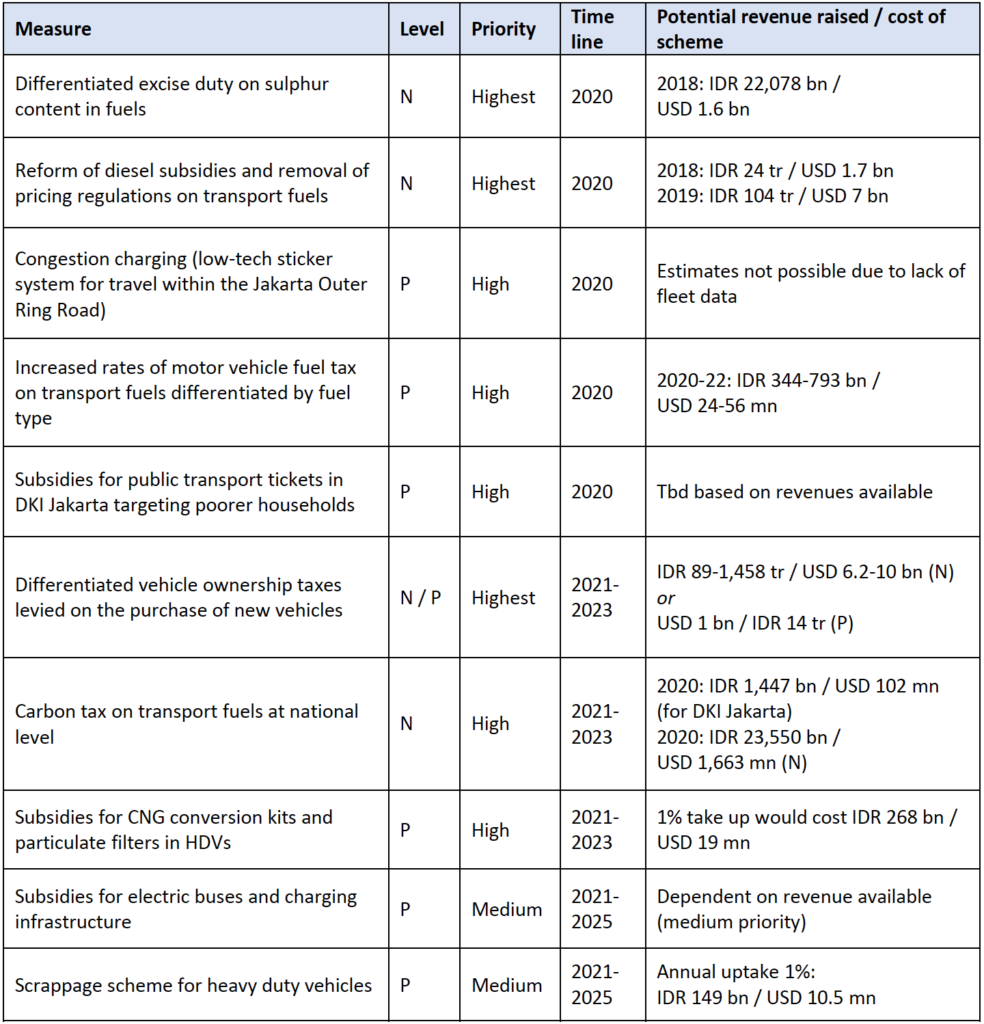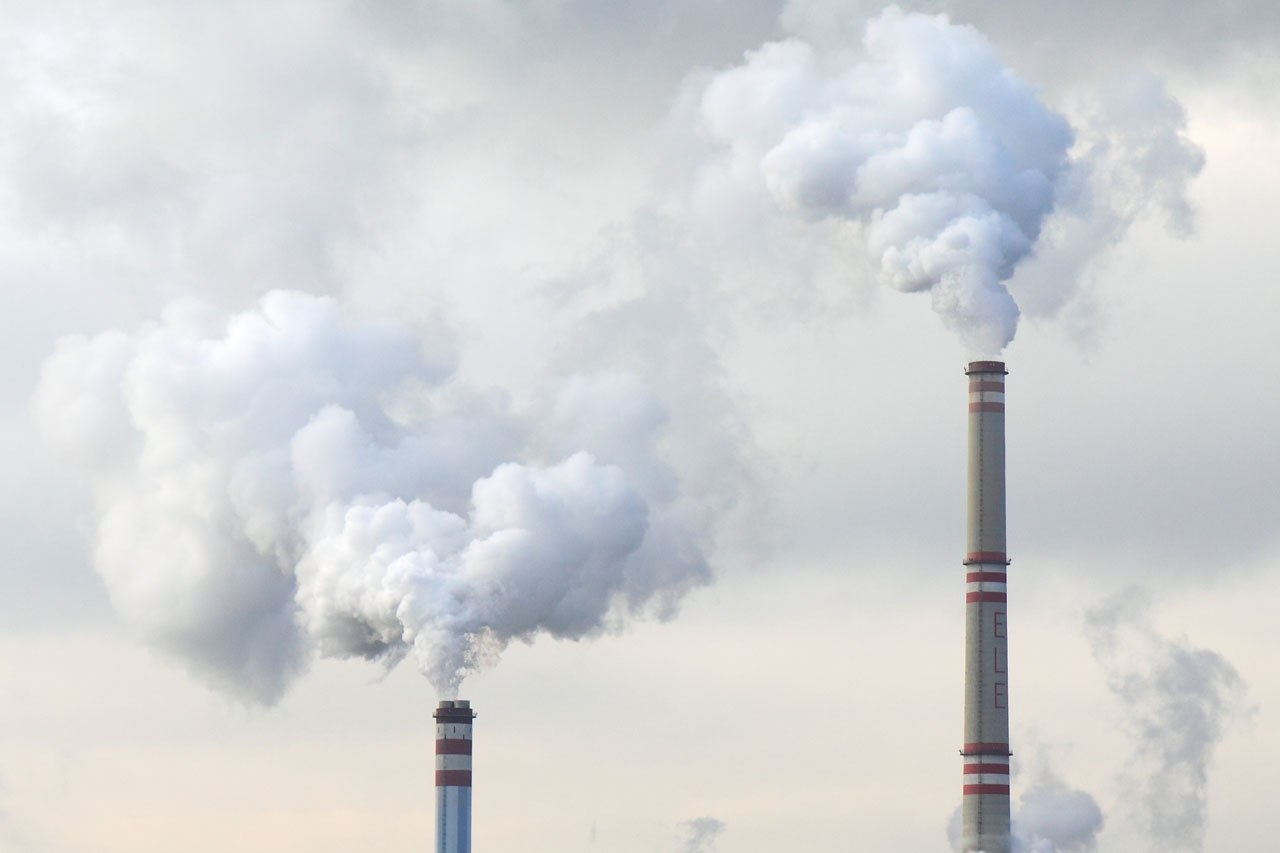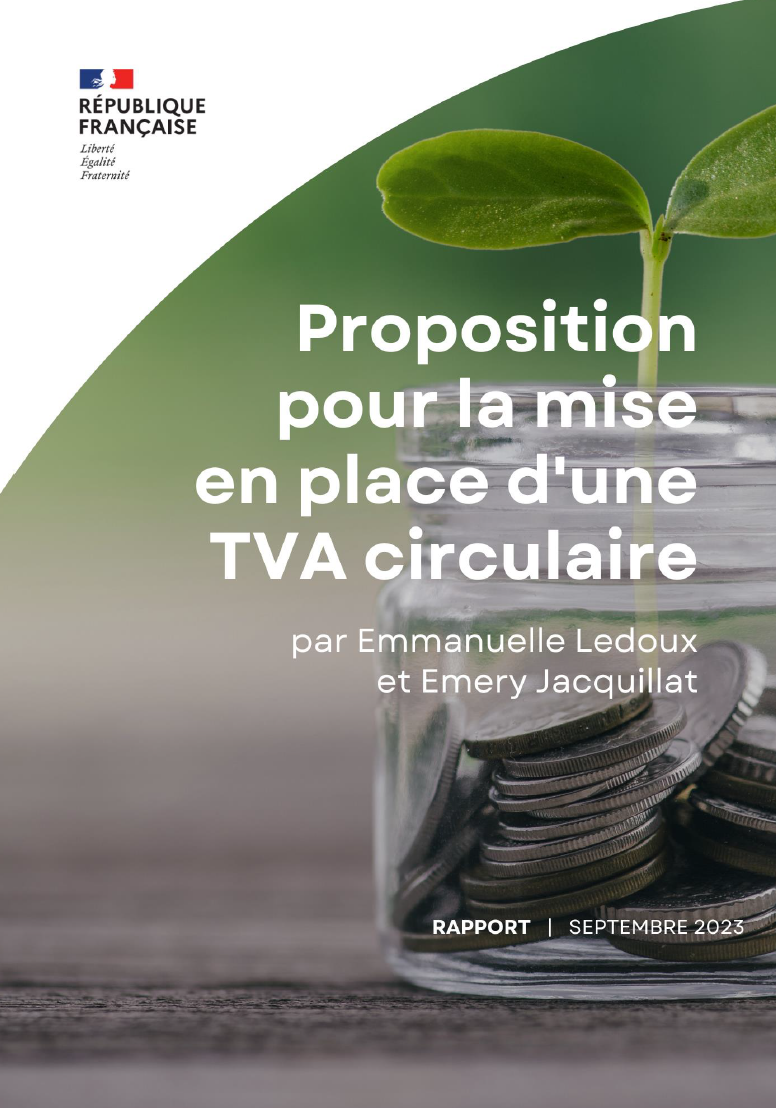The International Day of Clean Air for Blue Skies, which will take place for the first time on 7 September 2020, highlights the importance of a recent UNEP working paper on fiscal policies to tackle the air pollution crisis in cities. Using the example of Jakarta, Indonesia, the study demonstrates how fiscal policies can reduce negative human health impacts associated with air pollution while mobilising revenue for policy priorities, such as greening the recovery.
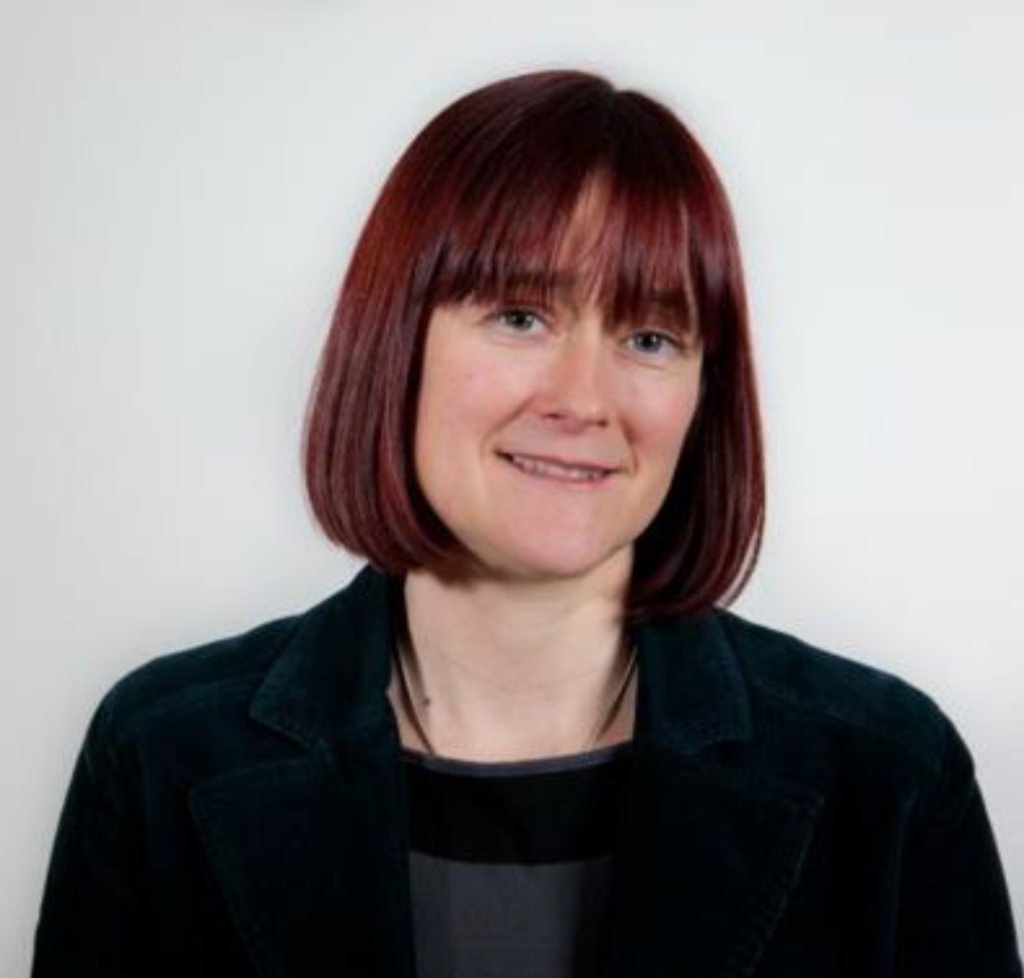
Jacqueline Cottrell has worked as an international consultant specializing in green fiscal policy, green budgeting and inclusive green economy policies since 2004, delivering policy advisory, capacity development and research. She has worked with GIZ, AFD, UNEP, UNESCAP, UNOSD, UNITAR, IEA-RETD, IISD, VIDC and is a freelance associate at Green Budget Germany. She has published widely on green fiscal policy.
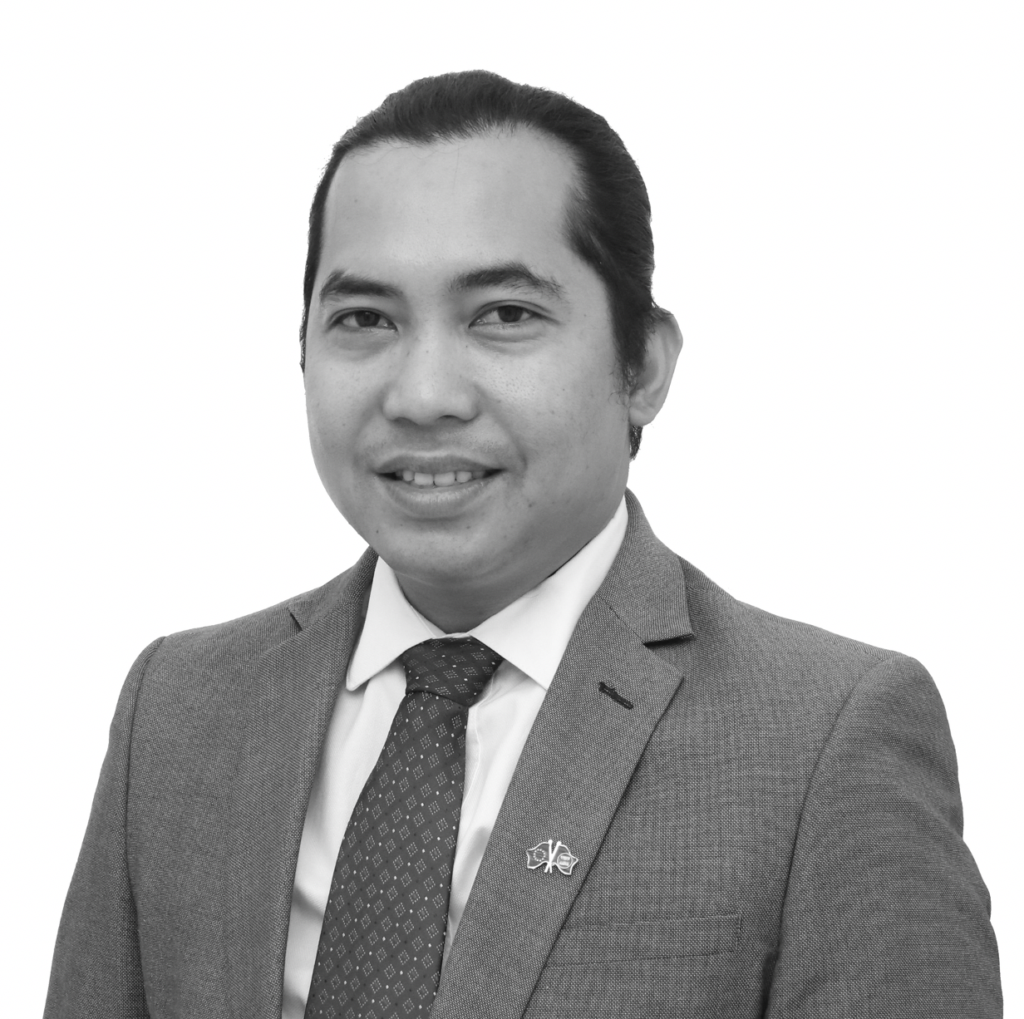
Aditya Mahalana has more than 15 years of experience in the field of urban sustainability, transport and energy, and climate change mitigation. Aditya has supported government and non-government agencies in Indonesia on climate change mitigation, air pollution, Euro IV emission standard, and fuel quality. He is currently working as a consultant for ICCT.

Kai Schlegelmilch is an expert on Green Fiscal Reform. He is trained as banker and has a diploma in political economics. He has worked for 27 years in national and international research, policy and government institutions, since 1999 mainly in the German Federal Ministry for the Environment. Kai is co-founder of two think tanks, Green Budget Europe and Green Budget Germany.

Verena Streitferdt (PhD) has over 10 years of work and research experience on the topics of sustainable energy, climate policy and finance in the South East Asian context. She focuses on linking international expertise with local knowledge in ASEAN and on energy transition, especially to unleash private sector investment into the sustainable energy space. She is currently working as a consultant for Pertiwi-Consulting.
THE AIR POLLUTION CRISIS
Air pollution is the single greatest environmental risk to human health, causing an estimated 7 million premature deaths each year worldwide. The UN International Day of Clean Air for Blue Skies raises awareness of the significance of air pollution and is a recognition by UN Member States of the urgent need for government action to tackle air pollution and related crises. The urgency of this issue has been highlighted by the strong correlation between cities with high concentrations of air pollution and larger and more serious Coronavirus outbreaks. Exposure to harmful pollution concentrations is high in many cities in Asia, including Jakarta, the most polluted capital city in South East Asia.
South East Asia country and city ranking by PM 2.5 concentrations (µg/m3)
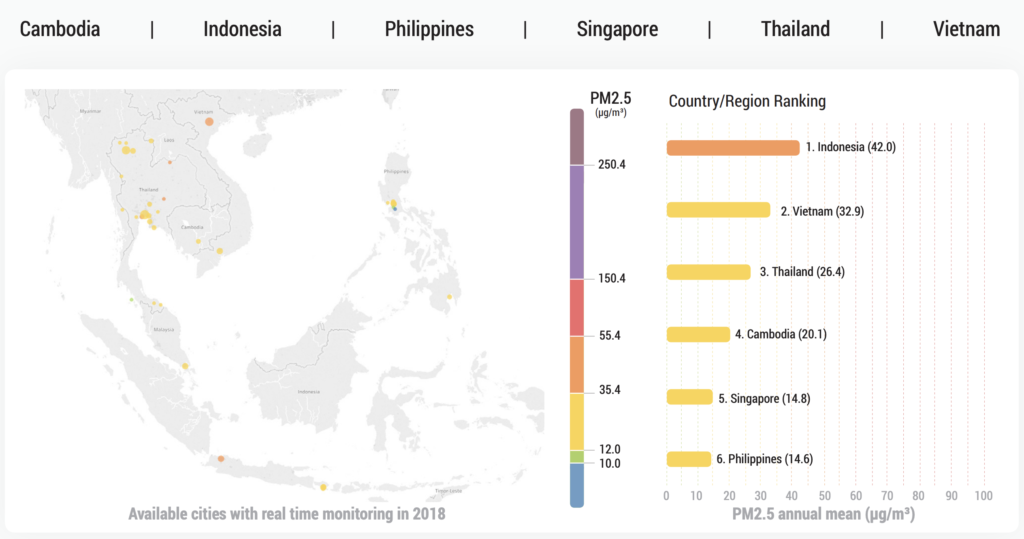
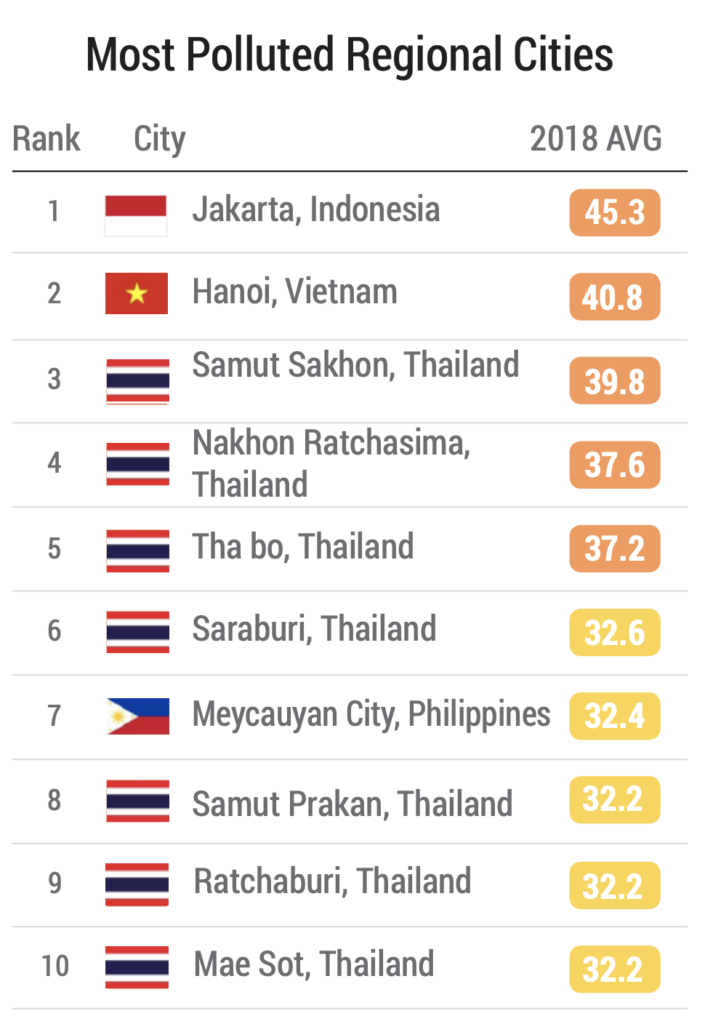

Source: : 2018 World Air Quality Report: Region & City PM2.5 Ranking, IQ Air: Air Visual
In Indonesia, total costs attributable to air pollution were three times higher than the national health budget in 2015 and will continue to rise unless strict measures are implemented by the government. In absolute terms, health costs were more than six times higher in 2017 than in 1990.
Mortality, morbidity and welfare costs from exposure to ambient particulate matter in Indonesia
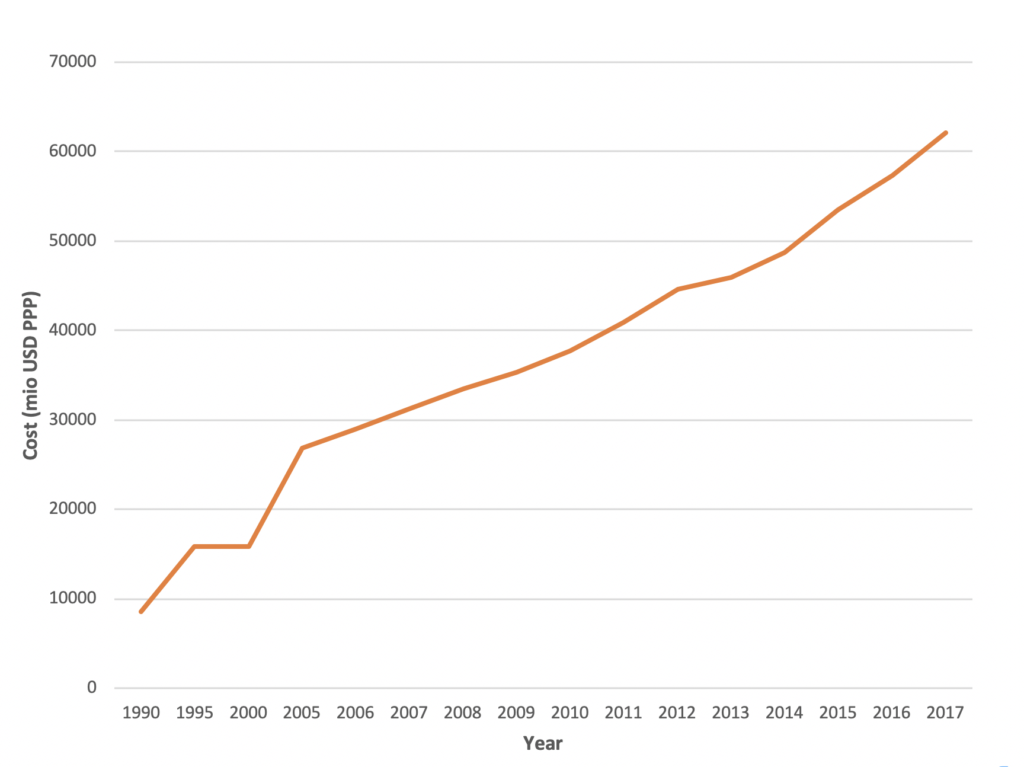
Source: Authors, based on OECD 2019d (OECD Environment Statistics Database)
Typically, Jakarta’s citizens are exposed to polluted air that has severe or moderate health impacts for 194 days each year. In 2016, 75% of the population was reported to have suffered from an air-pollution related illness. A major source of this pollution and thus a significant contributor to negative human health impacts and high morbidity rates is road transport. Harmful emissions from the transport sector are expected to continue to rise steeply until 2030 if policies are not implemented to reduce emissions.
PM 10 emissions from road transport in Jakarta to 2030
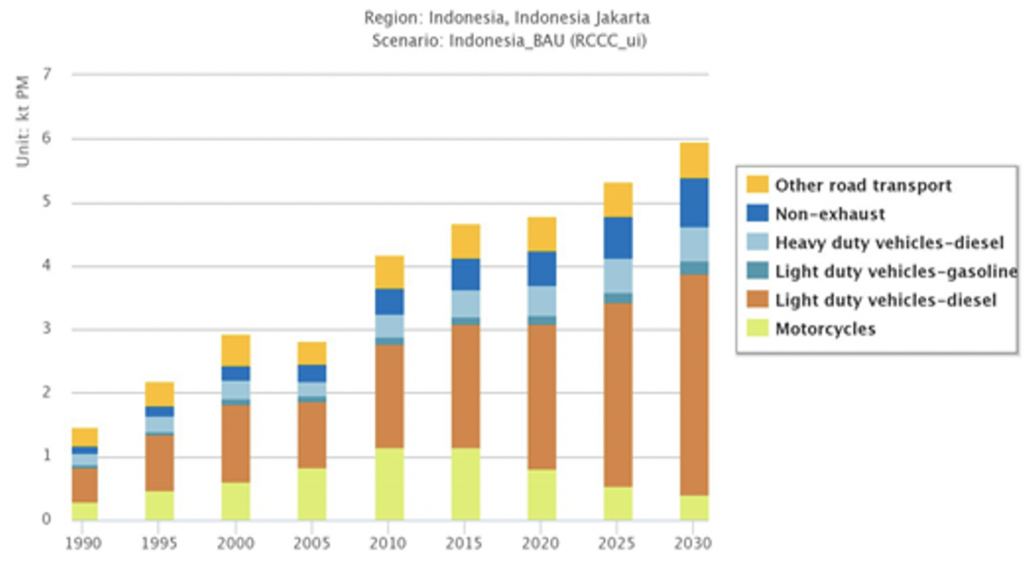
Source: RCCC_UI 2019
A WINDOW OF OPPORTUNITY FOR REFORM?
In 2018, citizens of Jakarta sued municipal and national governments for failing to take meaningful action to reduce exposure of the city’s population to harmful air pollution. As a result, awareness of the negative health impacts amongst policymakers and the general population is relatively high.
At the same time, green fiscal policies have been gaining ground: in February 2020, a new plastic bag excise was agreed, and the parliament debated new excise duties on fossil fuel vehicles on the basis of CO2 emissions and unhealthy sugary drinks – measures predicted to raise US$ 1.7 billion if put into effect. Carbon pricing and carbon trading are also under discussion.
Finally, policymakers will need to explore innovative sources of public revenue to fund the recovery from the predicted halving of GDP growth in 2020 due to the COVID-19 crisis. Green fiscal policies are a natural choice for policymakers wishing to drive the recovery and stay on track to achieve the SDGs and Indonesia’s NDC targets.
Together, these factors – awareness of the increasing costs and health impacts of pollution, political acceptance for green fiscal policy, and the imperative to mobilise revenue – have created a window of opportunity for reform.
RECOMMENDATIONS
To support policymakers in their efforts to use this window of opportunity and drawing on insights from international best practice, Fiscal policies to address air pollution from road transport in cities and improve health: Insights from country experiences and lessons for Indonesia proposes a range of fiscal policy instruments to support recent efforts made by the Indonesian and the municipal government of Jakarta to reduce harmful air pollution emissions.
The study elaborates a package of measures at the national and provincial level (as shown in the table) complemented by a review of existing regulations to reduce overlaps and improve monitoring and enforcement.
Several high priority actions to tackle harmful emissions quickly and effectively are proposed. Differentiated sulphur excise would deliver health cost savings of at least IDR 258 million / US$ 19 million and raise IDR 22,078 billion / US$ 1.6 billion in the first year of implementation (exchange rate US$1 = IDR 14.165): more than enough revenue to upgrade all domestic refineries to produce low-sulphur diesel. Other measures include taxes on transport fuels, a low-tech congestion charging scheme and vehicle ownership taxes calculated on the basis of harmful vehicle emissions.
Fiscal policy measures at national (N) and provincial (P) level and implementation timeline
The negative social and distributional impacts of these proposals are expected to be relatively limited and will be more than compensated for by human health improvements and health cost reductions. Thus, these policies will increase welfare. Drawing on the country’s experience of reallocating revenue in parallel to fossil fuel subsidy reform in 2015, the paper proposes that revenues raised are used to protect the household incomes of vulnerable groups from direct and indirect price effects, for pro-poor investment in health, education and infrastructure, and to subsidise public transport tickets. Subsidies for CNG conversions and scrappage schemes are proposed to facilitate access to technologies and cleaner vehicles for small businesses and lower income groups.
Given the similarity of the pollution challenges cities face, particularly in emerging economies, the recommendations of the study have a wide application. If implemented, they have the potential to reduce harmful emissions, deliver tangible human health benefits, and mobilise revenues to facilitate spending on green infrastructure and green recovery in high-density mega-cities all over the world.

